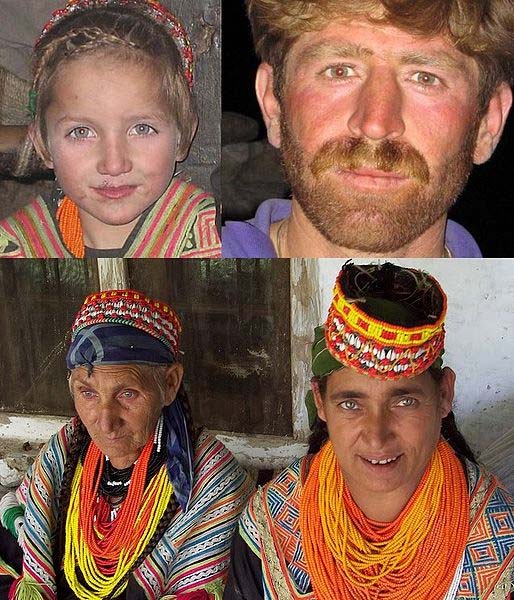The Kalash (known also as the Kalasha) are an indigenous people living in what is today Pakistan. Although Pakistan is an Islamic Republic, with more than 95% of its population being adherents of Islam, the Kalash hold on to their own religious beliefs, along with their own identity, way of life, and language. The Kalash people are also noted for their fair skin and blue eyes, leading to a popular hypothesis that they were of Greek origin, specifically the descendants of Alexander the Great’s soldiers who followed him on his campaign in India.
The Kalash can be found in the Chitral District, which is situated in the northwestern Pakistani region of Khyber Pakhtunkhwa. They live in three specific valleys in this area, Bumboret, Birir, and Rumbur. In an article from 2016, it was estimated that the Kalash community consist of about 3000 people, which makes them the smallest minority group of Pakistan. Nevertheless, this group is best known for their unique and well-preserved culture, which has led to it being listed by UNESCO for consideration as an Intangible Cultural Heritage. As a matter of fact, this bid for recognition is an attempt by the Kalash to safeguard their culture.
The unique nature of the Kalash culture has also allowed these people to turn to tourism as a source of income. It has been pointed out that scholars, specifically sociologists, anthropologists and historians, as well as photographers, are particularly drawn to the Kalash, and many visit them each year. In the 1990s, for example, thousands of people visited the area annually, though these figures have dropped since 9/11. One aspect of the Kalash that fascinates these scholars and tourists is their origin.
Buy Silver at Discounted Prices
There are two major hypotheses regarding the ancestry of the Kalash. One is that they are the descendants of the Greek soldiers who followed Alexander the Great on his Indian campaign. This link between the Kalash and the Macedonian king is perhaps best seen in Rudyard Kipling’s well-known story, The Man Who Would be King, in which this supposed connection forms the basis of the tale.

Individual people of the Kalash culture. (CC BY-SA 4.0)
Alternatively, it has been hypothesised that the Kalash are in fact of Indo-Aryan stock. It has been reported that in recent times, DNA tests have been conducted to determine if the Kalash were indeed of Greek origin. The results indicate that the Kalash did not have Greek origins, thus lending support to the hypothesis that they were Indo-Aryans who migrated to the area perhaps several millennia ago.



